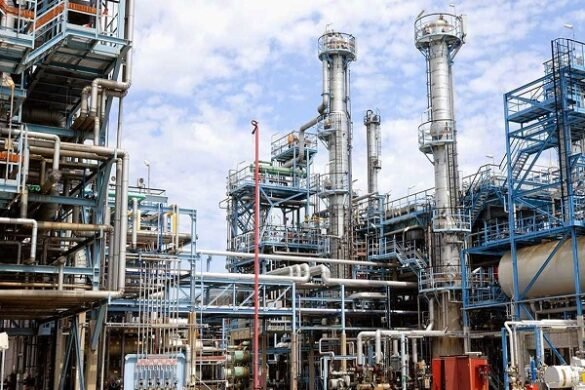The Nigerian National Petroleum Company Limited (NNPC) has firmly dismissed speculations regarding the sale of the Port Harcourt Refining Company, reinforcing its commitment to the complete rehabilitation and long-term retention of the facility. This declaration was made by the Group Chief Executive Officer, Bayo Ojulari, during a company-wide town hall meeting held at the NNPC Towers in Abuja.
According to an official press statement released by NNPC, the decision is not a policy reversal but rather a strategic direction based on ongoing technical and financial evaluations of the Port Harcourt, Kaduna, and Warri refineries. Ojulari clarified that the earlier plan to restart the Port Harcourt refinery before completing its full rehabilitation was economically unwise and technically unsound.
While progress continues on all three major refineries, NNPC emphasized that advanced technical collaborations are now necessary to fully rehabilitate and upgrade the Port Harcourt plant. As such, the idea of selling the refinery has been ruled out, as doing so would lead to further loss of value and undermine national energy goals.
READ ALSO: Anioma state creation: Why Anioma’s Identity Strengthens the Case for Inclusion in the South-East
NNPC’s renewed stance comes amid widespread speculation sparked by Ojulari’s earlier comment at the 2025 OPEC Seminar in Vienna, where he mentioned that “all options are on the table.” That remark triggered speculation about possible asset sales, but NNPC has now put such rumors to rest with a clear position.
The town hall meeting was applauded by staff as a strong reaffirmation of NNPC’s business focus and leadership direction. Executive Vice Presidents from various business arms—including Upstream, Downstream, Finance, Gas, and New Energy—shared progress updates and strategic plans, addressing past challenges and highlighting the path forward.
Ultimately, this announcement underscores NNPC’s role as the strategic guardian of Nigeria’s energy infrastructure, reaffirming its resolve to complete refinery rehabilitation and retain critical national assets. The move aligns with the Federal Government’s broader energy security agenda and highlights the organisation’s central role in safeguarding national interests in the energy sector.


